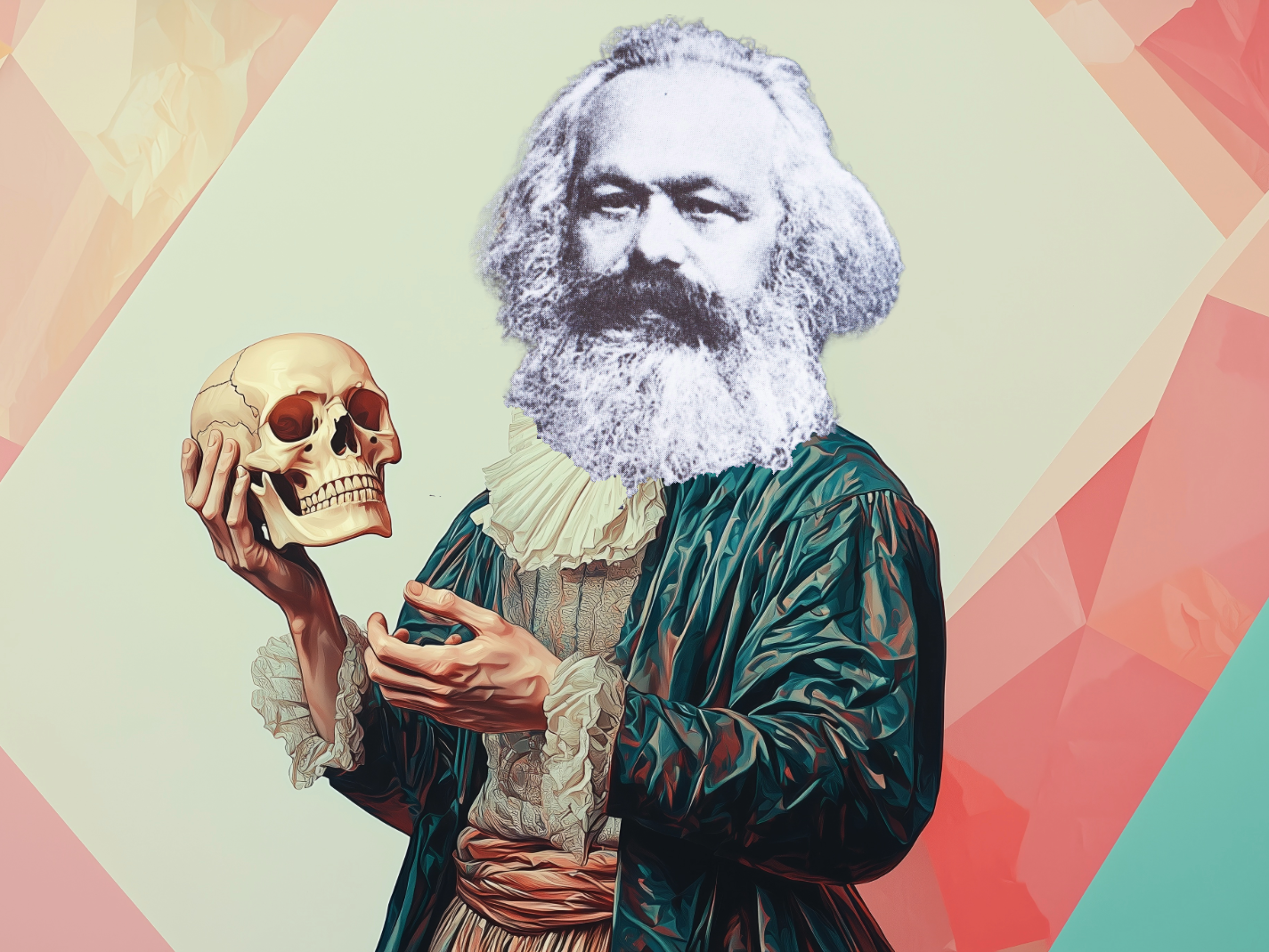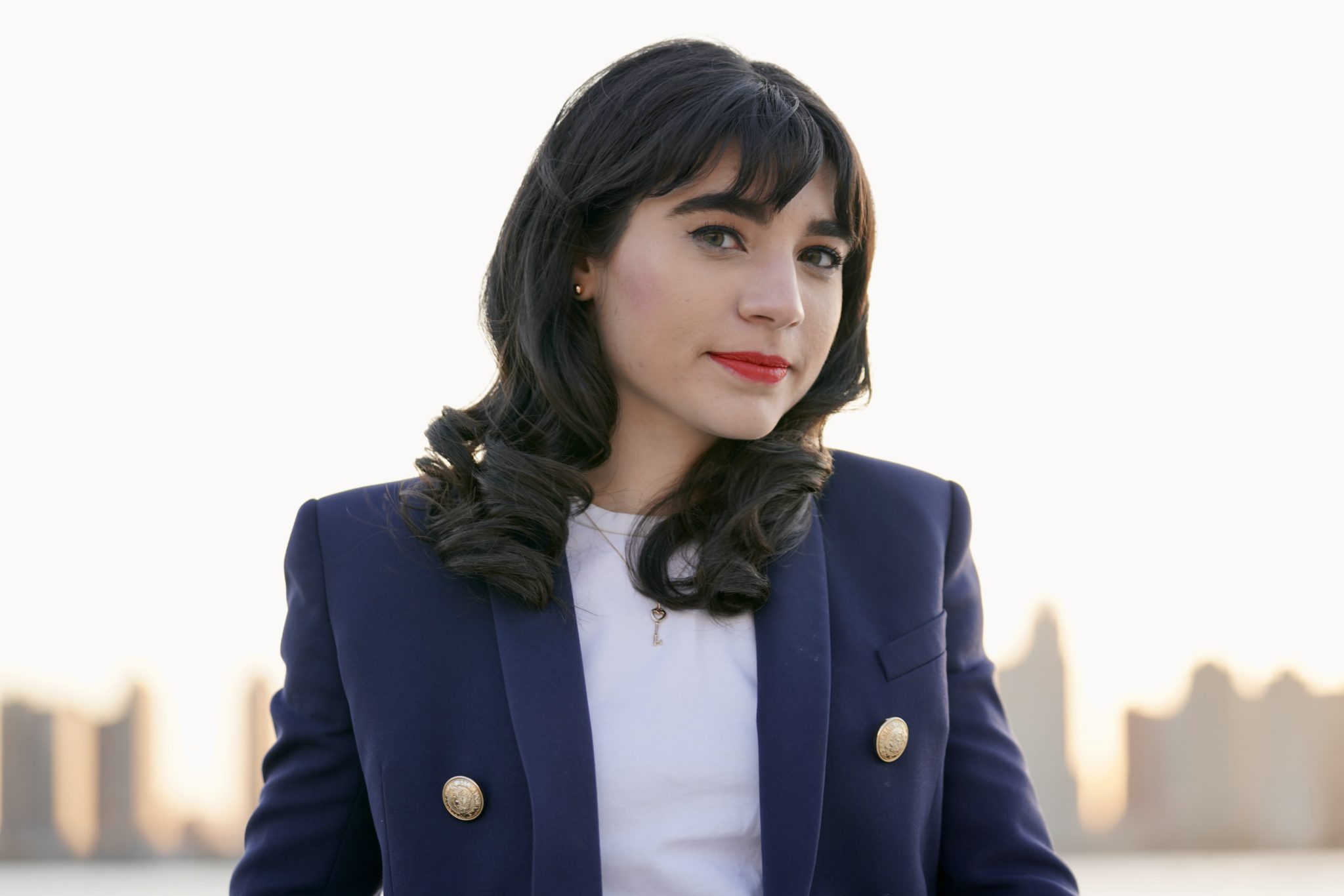
Last week, a student of mine learned that I did not identify as far left. I watched, on the Zoom call, as her pupils dilated in fascination: “But you were an English major at Columbia!,” she exclaimed.
Incidents like these are not uncommon. Over on my Instagram page, where I post videos to promote the love of literature, I have received countless messages in disbelief that I graduated from Columbia University with an English degree yet look askance at socialist policies and support the existence of the state of Israel. Yet while many of these commentators express their solidarity with my views, their consistent surprise reveals a greater problem in higher education: literature has become a bastion for the radical left.
A whopping 80 percent of English literature professors identify as liberal, the largest percentage from any subject out of the 15 surveyed in a poll by The American Interest. Across English classrooms in American colleges, students are trading their Shakespeare and Chaucer for Marx and Engels. As one Twitter poster aptly observes, “‘literature’ is [a] code word for Marxism.” After a recent change to UCLA English department graduation requirements, for instance, UCLA English majors must now take one course in each of the following categories: “Gender, Race, Ethnicity, Disability and Sexuality Studies,” “Imperial, Transnational, and Postcolonial Studies,” and “Genre Studies, Interdisciplinary Studies, Critical Theory.” Yet not one course mandates the study of Shakespeare, Chaucer, or Milton.
In English departments across America, literary theory—often informed by tenets of radical leftist ideology—has colored young students’ perceptions of classic texts. Out of the eight literary theory movements cited in the ’s article on theory, six of them cater to ideologies of the far left such as Marxism, Postcolonialism, and Queer Theory. An introductory “Theory of Literature” course at Yale echoes this classification, with 18 out of 26 lectures devoted to leftist ideology. Similarly, in my mandatory literary theory seminar at Columbia, 11 out of 12 weeks of the semester were devoted to far-left thinkers such as Gayathri Spivak, Edward Said, and Kate Millett. On the flip side, only one traditionally-minded critic—the modernist poet T.S. Eliot—features on these lists.
So why has literary theory developed so lopsidedly? One potential explanation might lie in the social revolutions of the 1960s, with the New Left reintroducing Marxism and gender ideology into the academies, a place where radical thinkers—witnessing Marxism fail on the societal level before their eyes—identified a new application for their ideals in the subjective field literature. As a greater number of Marxist professors flooded the academies, the ideology spread, and established professors responsible for granting tenure to new graduates would predicate their hiring decisions on their personal biases. As a result, English professors—creative types who tend to lean left politically by default—replicated literary theory in its counter-cultural manifestation until radical ideology became dogma in English departments across the country.
As students of English literature digest Karl Marx and Michel Foucault for breakfast, they become indoctrinated into these systems of analyzing literature, believing, somewhat erroneously, that Mansfield Park is a novel about race and Howards End is a novel about class consciousness. And while these novels might indeed appeal to certain aspects of race and class, this narrow-minded approach to analyzing literature causes students to misapprehend the point of these monumental texts as a whole, which comment on more universal facets of the human experience. And indeed, with the standardization of literary theory across the Western world—with no alternatives ever exiting the mouths of English professors—why should students be prompted to search for an alternate way to engage with literature?
Yet true scholars know that literature has always been about humanistic traditions. Literature, by definition, must contain a profound and universal insight into the human experience. By providing a commentary on shared human universals, literature has been known to bring us together rather than to tear us apart. And while I do not advocate for the complete erasure of literary theory from the academy, I do believe that theory has skewed too far to one side and often invokes voices that have no place in literary study.
If we took Karl Marx, for instance, an economic theorist responsible for countless global ills, and replaced him with Milton Friedman, an economist from the opposite end of the pole, would we still believe that economic theory is a viable lens through which to understand literature? I imagine most of us would consider a Miltonian economic read of The Merchant of Venice somewhat ludicrous.
The reason we have accepted Marx into the academy—and not Milton Friedman, Ayn Rand, or Friedrich Hayek—is because literary theory has become a playground for the intellectual left to promote ideas that have no tenable societal use otherwise. Until we can restore the conception of literature as profound and humanistic rather than as a political vehicle, English students will continue to become radicalized, and we will all be left scrambling in the dark.
Follow Liza Libes on X
Background image by mattegg, Adobe Stock (Asset ID: 916870162); Karl Marx head by caifas, Adobe Stock (Asset ID: 137440553); edited by Jared Gould

This makes sense for structural reasons. Literature serves as a simulation layer in a society that is increasingly simulation-driven. At various points in history, literature was an attempt to shine a light on deeper truths about the world. But as the academy went through the “cycles of simulation” it was always going to be easier to achieve peak-simulation in the study of English than in the study of Physics (although Physics is not totally immune either!). I wrote about this recently here: https://open.substack.com/pub/theliminallens/p/systems-to-simulacra?r=dvftt&utm_campaign=post&utm_medium=web&showWelcomeOnShare=false
Maybe being smart is just a left wing thing, ever think about that??? Certainly, research supports this..
lol
Yes Pol Pot was a genius – he killed 2 million all by himself.
Also liquidating one’s own offspring – long term planning at its finest!
Why about eliminating oil? Planting food by hand and then harvesting it with scissors! Insight!
How about getting rid of personal property? You go in for a shower and come out and all the towels are gone. Einstein eat your heart out!
And work? Self sufficiency?
Please. Tired ideas of the white past.
Three letters.
EBT.
Your own low-IQ comment inspires doubt in that regard, ironically.
It always baffles me how people try to draw a line between whatever the kooky left is doing and “Marxism”. What the hell does Marx have to do with some ridiculous analysis of class in “Howard’s End”?
I’m a Philosophy major and a published novelist. Yes, you could maybe-perhaps draw a line between Marx and Foucault (kind of) and then from Foucault to American “Cultural Studies” (which you invented to mash a bunch of French intellectuals together), but acting like DEI Training sessions come from Das Kapital is outright ludicrous.
Marx is taught because he’s an answer to Hegel’s all-encompassing “Final Philosophy”. Yes, he was batshit crazy in many of his statements and proposals (but so was Kant, Nietzsche, etc) but his introduction of Dialectic Materialism is extremely useful. “Politics” as we know it, stems from Marx, who was the first person to theorize we could control history.
I get it: you’re surrounded by idiots devoid of critical thinking who go about bashing reality with their Marxist hammer, because it’s all they got. And for the love of me, I have no idea why you’re reading crackpot post-structuralist theories in an English class. But this isn’t Marx’s fault, nor does it prove anything about his theory. Many idiots have read “The Road to Serfdom” and gone about rambling on Socialism and privatizing everything. But when Ecuador legalized Cryptocurrencies as official legal tender, no one went about screaming about Hayek and saying he was wrong. I mean he is wrong – but you don’t need a social experiment spearheaded by right-wing technocrats to refute him.
I do agree with your bottom line, though: You should read writers in an English Class, not political philosophers. It’s not even that hard to push “Leftism” in: just have them read Upton Sinclair or André Malraux and they’ll get all the “Socialism” they need, without the lengthy, hard to understand concepts in Marx.
Vicente is right. The craziness in literary theory is attributable to Foucault, not Marx. Marx thought he was telling the truth about society. Foucault was pushing the thesis that there is no such thing as truth. Marx’s theory was mistaken, but Foucault’s theory was crazy.
What the hell does Marx have to do with some ridiculous analysis of class in “Howard’s End”? – Marxism is a totalizing system that gives itself permission to be the arbiter of truth. “Economics is the fundamental condition of history”. Therefore, all analysis of culture is by definition, class-based economic analysis. In non-Marxist epistemology, there’s not much to tie Howard’s End to Marx, but in the world of Marxism, they have permission to go anywhere and colonize all debate. This is why they end up in all kinds of odd places. As the Soviet Defector Yuri Bezmenov pointed out in the 1970s, the Marxist Leftists are important for the establishment of Soviet Socialist Republics, but once established, they must be killed. The Ayatollahs of Iran used them similarly to seize power before killing them all. Marxist Utopians are the cannon fodder of what I call “Deep Marx,” which is totalitarian state control, or as Orwell called it, “oligarchical collectivism”.
I had learned German while living in Germany and later studied for two more years of more advanced German at the University of Washington, although my goal was to get accepted at the UW dental school and to practice after my graduation. To this day, although I did like the physical sciences, in my classes in history, economics, and classic literature in German and English classes, I found real meaning and inspiration which greatly enriched my life, and I am grateful for the exposure. I later enjoyed sharing some with patients in my practice, when I thought it might help them on their own life journey.